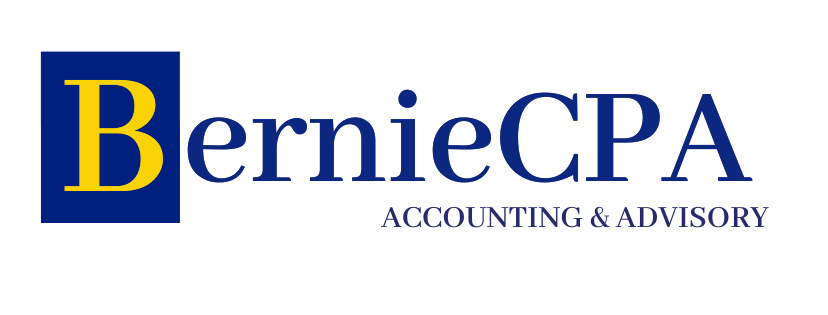Navigating the Complexities of Beneficial Ownership Reporting: A Guide for Businesses
Beneficial ownership refers to the individuals who ultimately own or control a company or asset, even if their names do not appear on the official documents. This concept is crucial for understanding the true ownership and control of a business, as it helps to prevent money laundering, tax evasion, and other illicit activities. Beneficial owners may include individuals, entities, or even other companies that have a significant interest in the business. Understanding beneficial ownership is essential for maintaining transparency and accountability in the corporate world.
In order to understand beneficial ownership, it is important to distinguish between legal and beneficial ownership. Legal ownership refers to the individuals or entities whose names are officially registered as the owners of a company or asset. On the other hand, beneficial ownership refers to the individuals who ultimately benefit from the ownership or control of the company or asset, regardless of whether their names are officially registered. This distinction is important because it helps to uncover the true owners and controllers of a business, which is crucial for preventing fraud and other illegal activities. By understanding beneficial ownership, companies and regulatory authorities can ensure that the true owners and controllers are identified and held accountable for their actions.
Legal Requirements and Compliance
Many countries have legal requirements for disclosing beneficial ownership information, in order to prevent money laundering, tax evasion, and other illicit activities. These requirements may include the obligation for companies to maintain a register of their beneficial owners, and to disclose this information to regulatory authorities. In some cases, failure to comply with these requirements may result in severe penalties, including fines and imprisonment. Therefore, it is crucial for companies to understand and comply with the legal requirements related to beneficial ownership.
In addition to legal requirements, companies may also be subject to international standards and regulations related to beneficial ownership. For example, the Financial Action Task Force (FATF) has established international standards for combating money laundering and terrorist financing, which include requirements for disclosing beneficial ownership information. Companies that operate internationally must ensure that they comply with these standards, in order to avoid legal and reputational risks. Therefore, it is essential for companies to stay informed about the legal requirements and compliance standards related to beneficial ownership, in order to avoid potential penalties and sanctions.
Identifying Beneficial Owners
Identifying beneficial owners can be a complex and challenging process, especially in cases where ownership structures are opaque or involve multiple layers of ownership. In some cases, beneficial owners may attempt to conceal their ownership interests through complex corporate structures or nominee arrangements. Therefore, it is crucial for companies to conduct thorough due diligence to identify their beneficial owners, in order to maintain transparency and accountability.
One of the key challenges in identifying beneficial owners is the use of nominee arrangements, where individuals or entities are appointed as nominees to hold shares or assets on behalf of the true owners. This can make it difficult to determine the true ownership and control of a company or asset, as the names of the nominees may appear on the official documents. In such cases, companies must conduct thorough investigations to uncover the true owners behind the nominee arrangements, in order to comply with legal requirements and prevent illicit activities.
Reporting and Disclosure Obligations
Once beneficial owners have been identified, companies may be required to report and disclose this information to regulatory authorities. This may involve maintaining a register of beneficial owners, and submitting this information to a central registry or regulatory authority. In some cases, companies may also be required to disclose beneficial ownership information in their annual reports or other public documents. Failure to comply with these reporting and disclosure obligations may result in severe penalties, including fines and imprisonment.
In addition to reporting and disclosure obligations, companies must also ensure that they keep their beneficial ownership information up-to-date. This may involve conducting regular reviews of their ownership structures, and updating their records as necessary. By keeping their beneficial ownership information accurate and current, companies can ensure that they comply with legal requirements and maintain transparency and accountability.
Challenges and Pitfalls
Despite the importance of beneficial ownership reporting, companies may face various challenges and pitfalls in this process. One of the key challenges is the complexity of ownership structures, especially in cases where companies have multiple layers of ownership or involve offshore entities. This can make it difficult to identify the true beneficial owners, as ownership interests may be concealed through complex corporate structures or nominee arrangements.
Another challenge is the lack of standardized reporting requirements across different jurisdictions. This can make it difficult for companies to comply with reporting obligations, especially if they operate internationally. In some cases, companies may be subject to conflicting or overlapping reporting requirements, which can create confusion and increase compliance costs.
Best Practices for Beneficial Ownership Reporting
In order to overcome these challenges and pitfalls, companies should adopt best practices for beneficial ownership reporting. This may include conducting thorough due diligence to identify their beneficial owners, and maintaining accurate and up-to-date records of their ownership structures. Companies should also stay informed about the legal requirements and compliance standards related to beneficial ownership, in order to ensure that they comply with reporting and disclosure obligations.
Furthermore, companies should consider seeking professional assistance from legal and financial experts who specialize in beneficial ownership reporting. These professionals can provide valuable guidance and support in navigating the complex regulatory landscape related to beneficial ownership, and help companies to comply with reporting obligations effectively.
Seeking Professional Assistance
Given the complexity and importance of beneficial ownership reporting, companies should consider seeking professional assistance from legal and financial experts who specialize in this area. These professionals can provide valuable guidance and support in identifying beneficial owners, maintaining accurate records, and complying with reporting obligations. By working with professionals who have expertise in beneficial ownership reporting, companies can ensure that they meet their legal requirements and maintain transparency and accountability in their business operations.
In conclusion, understanding beneficial ownership is crucial for maintaining transparency and accountability in the corporate world. Companies must comply with legal requirements related to beneficial ownership reporting, and identify their beneficial owners through thorough due diligence. By adopting best practices for beneficial ownership reporting and seeking professional assistance when necessary, companies can ensure that they comply with reporting obligations effectively and prevent illicit activities such as money laundering and tax evasion.


